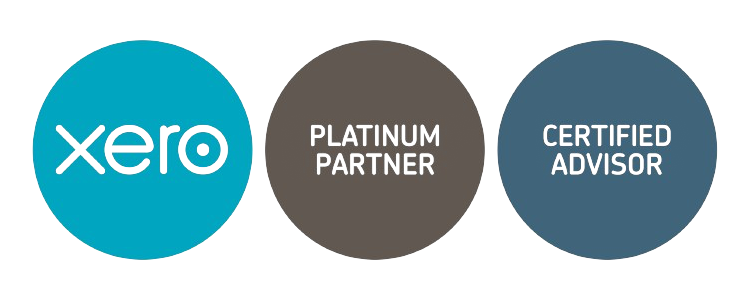CFO GROUP INTEGRATED SERVICES
[Latest 2022}Sole Proprietorship vs Private Limited (Pte Ltd) Company in Singapore
January 10, 2022
Sole Proprietorship vs Private Limited (Pte Ltd) Company in Singapore: Important Things You Need to Know
If you are a Singapore citizen or non-local and looking to start up a new business in the country, then you may be wondering what is the best type of company for your needs.
There are two main types: Sole Proprietorship and Private Limited Company (Pte Ltd). This article will discuss the important things that need to be taken into consideration before making this decision.
What are a sole proprietorship and a private limited (Pte Ltd) company in Singapore?
Sole Proprietorship in Singapore
The term "sole proprietorship" means that the business is run by one person and one person alone and has no separate legal entity of its own.
Sole proprietors will have unlimited responsibility for all of the activities and finances of his or her company, but they are also entitled to 100% of their profits.
A sole proprietorship is owned by the individual and has a separate legal identity. Only Singapore citizens, Singapore permanent residents, or EntrePass holders can apply for a sole proprietorship. The owner must be at least 18 years of age.
A sole proprietorship is the easiest and least expensive form of business structure to set up and maintain in Singapore. The government fee for sole proprietorship registration is $65 and minimal paperwork is required.
There are no ongoing filing requirements except the annual renewal of the sole proprietorship.
This makes it perfect for those who want to start their own business without having to deal with too much paperwork. The sole proprietor's income is also taxed under the individual taxation system, as opposed to a private limited company which falls into the corporate tax category.
Private Limited Company (Pte Ltd) in Singapore
The majority of entrepreneurs prefer to register their companies as Private Limited Companies in Singapore. A private limited company can be an appealing type of business structure for several reasons.
It is mandatory for these corporations to use the suffix ‘Private Limited,’ ‘Pte Ltd’ or “Ltd” as an integral part of their company name and it's easy!
A PLC, unlike other Singapore business entities such as a sole proprietorship or a limited liability partnership, has a separate legal status from its shareholders and directors, who are only liable for the company's debts and losses. Also, a private limited company is always governed by the laws, rules, and regulations under the Singapore Companies Act, which are much stricter.
To set up a private company in Singapore, you will need to follow a fairly straightforward process. The sole proprietor of the company must deliver the requirements and pay the necessary fees at the registered office of the Accounting and Corporate Regulatory Authority.
A private limited company has more requirements to meet which include holding an Annual General Meeting (AGM) and filing its Annual Returns (AR) with ACRA.
The directors and shareholders of a company are not personally liable for the debts incurred by their business, but unlike other legal entities such as partnerships or sole proprietorships, there is no limit to how much these people can be held responsible for.
Sole Proprietorship vs. Private Limited (Pte. Ltd.) Company: The Differences, Benefits, and Risks of Converting Sole Proprietorship to Private Limited Company?
| Feature | Sole Proprietorship | Pte Ltd |
|---|---|---|
| Legal Entity | No separate legal entity. Same as the owner. | It has a separate legal entity. |
| Ownership | Singapore Residents - Foreigners and corporations allowed only with the appointment of a local manager | Minimum 1 Director and 1-50 shareholders. Ownership is transferable. |
| Liabilities | Unlimited liabilities Owners are individually liable for any debts and losses. |
Limited liabilities Each shareholder's responsibility is limited to the amount he invested in the business. |
| Taxes | Pays corporate taxes between 2 percent and 22 percent | Pays corporate taxes at the rate of 17 percent. Receive tax exemption. |
| Capital Funding | Hard to get capital funding due to less credibility. | Easier to get capital funding from banks and financial institutions. |
| Compliance | Register online on the BizFile+ portal. No separate auditing and tax filing requirements. | Needs to appoint a Company Secretary. Have to submit annual returns to ACRA. |
| Perpetuity & Succession | Lacks perpetual succession | The structure that lasts after members die or retire |
| Types of Companies Structure | Sole Proprietorship | Private Limited Company |
|---|---|---|
| Suitable For | Individuals with low risk. | Businesses with projected growth, which may require additional funding for expansion. |
| Advantages | Low-cost setup & easy to setup |
Tax exemptions – the first S$100,000 of net profit each year is tax at 75% and the next S$100,000 is taxed at 50% for the first three years. More government grants are available for a PLC. |
| Disadvantages | Personal assets are not protected. |
Compliance obligations such as financial reports, AGMs, etc. |
| Cap on Number of Members | One | Maximum 20 for exempt companies |
| Minimum Setup Requirement | One owner | One shareholder and one director (the same individual can be both) |
| Limited Liability | No | Yes |
| Audit of Accounts | No | The Company will enjoy audit exemption if it is fulfilled the small company requirement . |
| Cessation of Business upon Death of a Member/Partner | Yes | No. Equity shares go on in perpetuity. |
| Transfer of ownership | It is difficult to transfer company ownership. | It is simple to transfer half or whole ownership of the business. |
Benefits and Risks of Converting Sole Proprietorship to Private Limited Company?
Benefits of converting a sole proprietorship to a private limited company:
- Protection of personal assets
- Lower tax rates
- Access to government grants
- Compliance obligations
- Not a legal person (no audit of accounts)
- Cessation/transfer of sole proprietorship is difficult.
Risks in converting a sole proprietorship to a private limited company:
- Qualifying as a "small company" can be difficult. You need at least one director and shareholder, with the business owner being a resident of Singapore or an individual who is not the sole shareholder/director
- higher administrative or set up costs
- an increased liability
How to Convert Sole Proprietorship to Pte Ltd?
Here are the steps that are required:
Which Company Structure Is Better for a Foreigner?
Setting up a company in Singapore is easy for foreigners. However, the question remains: what type of structure should you choose?
The single-owner Sole Proprietorship can be registered by a foreigner residing outside Singapore, but he/she must appoint an authorized representative who resides here to manage and run it on his behalf.
There are no foreign shareholding restrictions for a private limited company, but at least one local director is required. The person can be a citizen or permanent resident of Singapore and does not need to have any shareholding in the company.
The Pte Ltd Company (Private Limited Liability) which limits shareholder liability may best suit foreign companies looking to do business in this region because they will have limited liabilities and more flexible tax arrangements as well as other benefits not afforded with sole proprietorships or partnerships.
What Taxes Will I Pay with Sole Proprietorship and Pte Ltd?
The government of Singapore just rolled out a progressive tax system for enterprises, where taxes depend on total earnings. The sole proprietorship rate is typically between 2% and 22%, which has been in place since 2017 without exemptions. On the other hand, Pte Ltd.’s must pay 17%.
Here are the steps that are required:
There are two exemptions available for taxation from the year 2020 onwards and only applicable to the first 3 years:
The tax-exempt private company Singapore is below:
- Tax exemption of subsequent year is 75% for first $10,000 chargeable income;
- The next $190,000 in regular income is taxed at 50%.
FAQ
Which Option to Choose?
Between both business structures, setting up an LLC or private limited company is the best choice for inspiring entrepreneurs in Singapore. Your personal assets are protected from business liabilities, and you can enjoy special tax incentives while working under a structure that allows your business to grow.
Sole proprietorships are taxed at the owner's personal income tax rate. On the other hand, Private Limited Companies are taxed at the corporate tax rate and are eligible for tax exemption.
The sole proprietorship is a simpler form of business that requires less paperwork than the Pte Ltd company. However, it does not provide any legal personhood for its owners as Pte Ltd does. This means that if you are looking for greater protection, the private limited company may be a better option.
Schedule a call with CFO Accounts & Services for more details on how to set up your private limited company. Our team can provide insight into what you need to make better business decisions, as we have experience working with specific industries and businesses of all sizes!










